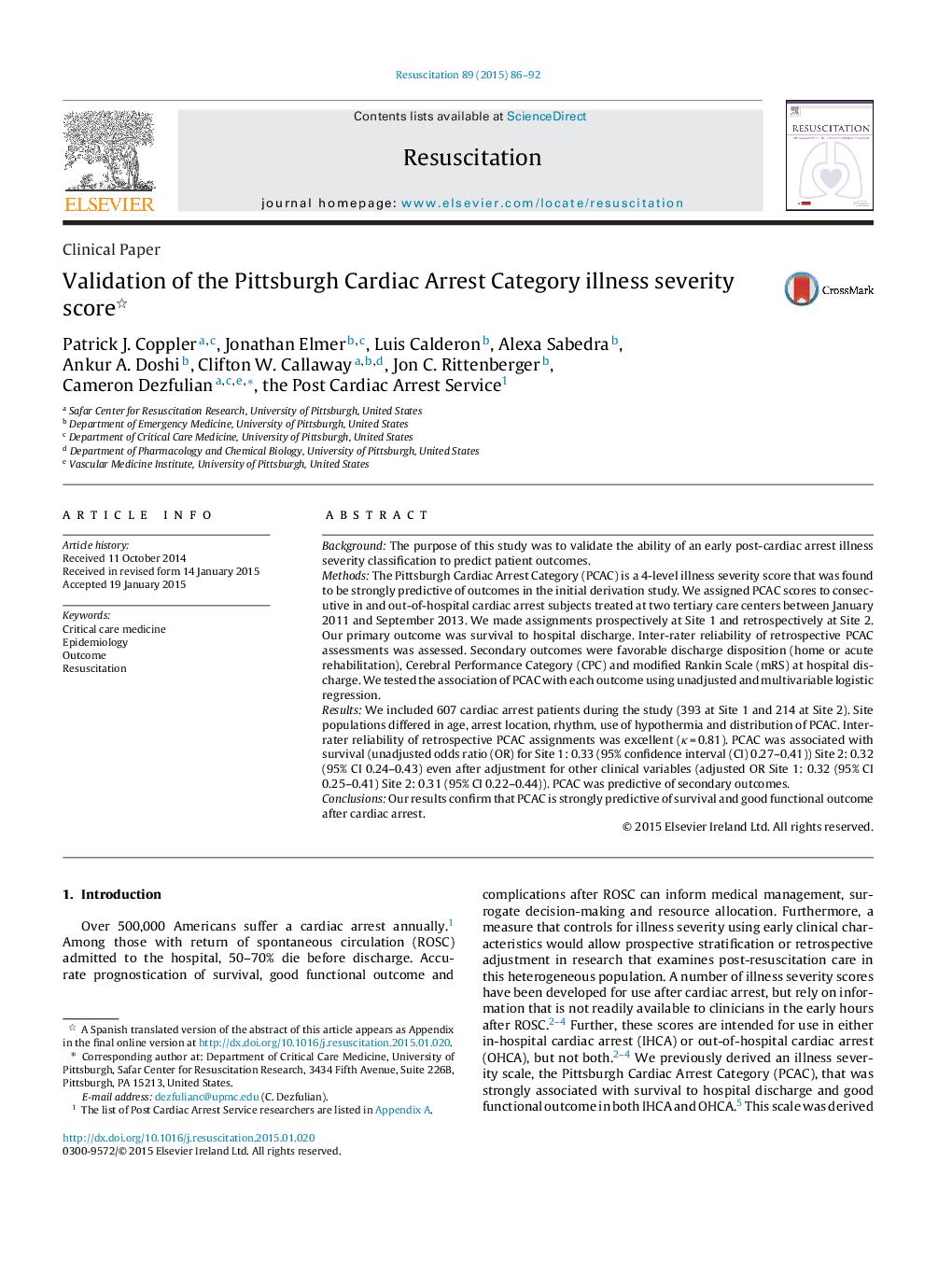| Article ID | Journal | Published Year | Pages | File Type |
|---|---|---|---|---|
| 5997958 | Resuscitation | 2015 | 7 Pages |
BackgroundThe purpose of this study was to validate the ability of an early post-cardiac arrest illness severity classification to predict patient outcomes.MethodsThe Pittsburgh Cardiac Arrest Category (PCAC) is a 4-level illness severity score that was found to be strongly predictive of outcomes in the initial derivation study. We assigned PCAC scores to consecutive in and out-of-hospital cardiac arrest subjects treated at two tertiary care centers between January 2011 and September 2013. We made assignments prospectively at Site 1 and retrospectively at Site 2. Our primary outcome was survival to hospital discharge. Inter-rater reliability of retrospective PCAC assessments was assessed. Secondary outcomes were favorable discharge disposition (home or acute rehabilitation), Cerebral Performance Category (CPC) and modified Rankin Scale (mRS) at hospital discharge. We tested the association of PCAC with each outcome using unadjusted and multivariable logistic regression.ResultsWe included 607 cardiac arrest patients during the study (393 at Site 1 and 214 at Site 2). Site populations differed in age, arrest location, rhythm, use of hypothermia and distribution of PCAC. Inter-rater reliability of retrospective PCAC assignments was excellent (κ = 0.81). PCAC was associated with survival (unadjusted odds ratio (OR) for Site 1: 0.33 (95% confidence interval (CI) 0.27-0.41)) Site 2: 0.32 (95% CI 0.24-0.43) even after adjustment for other clinical variables (adjusted OR Site 1: 0.32 (95% CI 0.25-0.41) Site 2: 0.31 (95% CI 0.22-0.44)). PCAC was predictive of secondary outcomes.ConclusionsOur results confirm that PCAC is strongly predictive of survival and good functional outcome after cardiac arrest.
